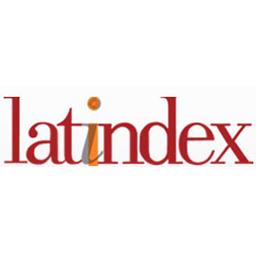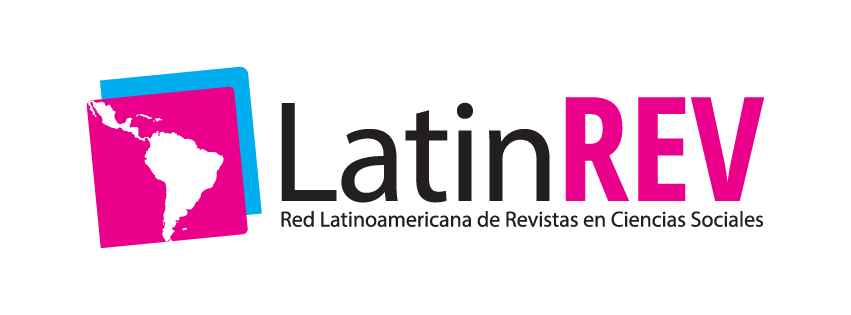Corporate Social Responsibility, ethics and incentives
Resumen
Palabras clave
Texto completo:
PDFReferencias
Aupperle, K.E., Carroll, A.B., and J.D. Hatfield. (1985). An Empirical Examination of the Relationship between Corporate Social Responsibility and Profitability. The Academy of Management Journal, 28 (2), 446-463.
Bigné, E., Chumpitaz, R., and R. Currás. (2010). Alliances between brands and social causes: The influence of company credibility on social responsibility image. Journal of Business Ethics, 96 (2),169-186
Boatright, J.R. (1988). Ethics and the role of the manager. Journal of Business Ethics, 7 (4), 303-312.
Carrasco, I. (2006). Ethics and banking. International Advances in Economic Research, 12 (1), 43-50.
Carroll, A.B. (1979). A Three-Dimensional Conceptual Model of Corporate Performance. Academy of Management Review, 4 (4), 497-505.
Carroll, A.B. (1991). The Pyramid of Corporate Social Responsibility: Toward the Moral Management of Organizational Stakeholders. Business Horizons, 34 (4), 39-48.
Carroll, A.B. (1998). The Four Faces of Corporate Citizenship. Business and Society Review, 100-101 (1), 1-7.
Christian Aid. (2004). Behind the mask: The real face of corporate social responsibility.
London: Christian Aid.
Cowton, C.J. (2002). Integrity, responsibility and affinity: three aspects of ethics in banking.Business Ethics: A European Review, 11 (4), 393-400.
Cowton, C.J. and P. Thompson. (2000). Do codes make a difference? The case of banklending and the environment. Journal of Business Ethics, 24 (2), 165-178.
Fetiniuc, V., and I. Luchian. (2014). Banking Ethics: Main Conceptions and Problems. Annals of the University of Petrosani Economics, 14 (1), 91-102.
Hohnen, P., and J. Potts. (2007). Corporate social responsibility: an implementation guide for business. Winnipeg: International Institute for Sustainable Development.
Kishore, S., Rao, R.S., Narasimhan, O., and G. John. (2013). Bonuses versus Commissions: A Field Study. Journal of Marketing Research, 50 (3), 317-333.
McWilliams, A., and D. Siegel. (2000). Research notes and communications. Corporate Social Responsibility and Financial Performance: Correlation or Misspecification?. Strategic Management Journal, 21 (5), 603-609.
McWilliams, A., Siegel, D.S., and P.M. Wright. (2006). Corporate Social Responsibility:
Strategic Implications*. Journal of Management Studies, 43 (1), 1-18.
Mohr, L.A., Webb, D.J., and K.E. Harris. (2001). Do Consumers Expect Companiesto be Socially Responsible? The Impact of Corporate Social Responsibility on Buying Behavior. The Journal of Consumer Affairs, 35 (1), 45-72.
Orlitzky, M., Schmidt, F.L., and S.L. Rynes. (2003). Corporate social and financial performance: A meta-analysis. Organization Studies, 24 (3), 403-441.
Pérez, A., and I.R. del Bosque. (2015). The Formation of Customer CSR Perceptions in the Banking Sector: The Role of Coherence, Altruism, Expertise and Trustworthiness. International Journal of Business & Society, 16 (1), 75-94.
Porter, M.E., and M.R. Kramer. (2006). Strategy and Society: The Link Between Competitive Advantage and Corporate Social Responsibility. Harvard Business Review, 85 (12).
Raccanello, K. and D.A. Romero. (2012). Prácticas predatorias y crédito al consumidor.
Eseconomía, 7 (36), 7-43.
Raccanello, K., García, D.A., and J.S. Aceves. (2015). Falta de transparencia y arrepentimiento del consumidor. Eseconomía, 10 (42), 7-42.
Reig, E. (2001). El lider interior. Mexico: Norma Ediciones.
Román, S., and J.L. Munuera. (2005). Determinants and Consequences of Ehical Behaviour: An Empirical Study of Salespeople. European Journal of Marketing, 39 (5/6), 473-
Secretaría de Hacienda y Crédito Público [SHCP]. Official website. Available at: http:// www.shcp.gob.mx/POLITICAFINANCIERA/casfim_new/Paginas/casfim_te.aspx Accessed on March 15, 2015.
Stevens, J.M., Kevin Steensma, H., Harrison, D.A., and P.L. Cochran. (2005). Symbolic or substantive document? The influence of ethics codes on financial executives’ decisions. Strategic Management Journal, 26 (2), 181-195.
von Wallis, M., and C. Klein. (2014). Ethical requirement and financial interest: a literature review on socially responsible investing. Business Research, 1-38.
Watkins, J.P. (2011). Banking ethics and the Goldman rule. Journal of Economic Issues, 45 (2), 363-372.
Watts, P., and L. Holme. (2000). Corporate Social Responsibility: Making Good Business Sense. Conches-Geneva: World Business Council for Sustainable Development
(WBCSD).
Zinkhan, G.M., Bisesi, M., and M.J. Saxton. (1989). MBAs’ Changing Attitudes Toward
Marketing Dilemmas: 1981-1987. Journal of Business Ethics, 8 (12), 963-974.
Zoltners, A.A., Sinha, P., and S.E. Lorimer. (2012). Breaking the Sales Force Incentive Addiction: A Balanced Approach to Sales Force Effectiveness. Journal of Personal Selling and Sales Management, 32 (2), 171-186.
Enlaces refback
- No hay ningún enlace refback.
Copyright (c) 2019 Regiones y Desarrollo Sustentable

Este obra está bajo una licencia de Creative Commons Reconocimiento 4.0 Internacional.
REGIONES Y DESARROLLO SUSTENTABLE
Año XXIII, No. 44, Enero-Diciembre, 2023, es una revista de publicación continua editada por El Colegio de Tlaxcala, A.C., Avenida Melchor Ocampo No. 28, Col. San Pablo Apetatitlán, Apetatitlán de Antonio Carvajal, Tlaxcala, C. P. 90600 Tel. 52 (246) 46 4 52 33, ext. 1135, http://www.coltlax.edu.mx/openj/index.php/ReyDS, rev_regionesydesarrollosustentable@coltlax.edu.mx Editor responsable: Arturo Juárez Martínez. Reserva de Derechos al Uso Exclusivo No., ISSN:2594-1429, otorgados por el Instituto Nacional de Derecho de Autor. Responsable de la última actualización de este número, Departamento de Ediciones de El Colegio de Tlaxcala, A.C., Arturo Juárez Martínez, Avenida Melchor Ocampo No. 28, Col. San Pablo Apetatitlán, Apetatitlán de Antonio Carvajal, C.P. 90600, fecha de última modificación: 02 de febrero de 2024.







